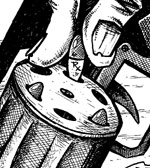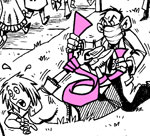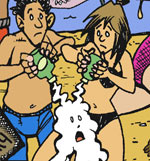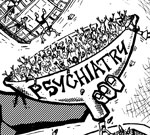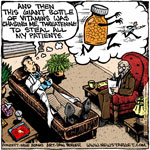The Rare Complications of Combining Echinacea with Prescription Drugs
| Share on Facebook | Share on Twitter | Share on Google+ |
Echinacea is a remarkably non-toxic herb. Echinacea side effects almost always have to do with whether alcohol was used to preserve echinacea flowers or echinacea juice, and whether the herb is taken with certain prescription drugs.
Choosing the Right Form of Echinacea
Dozens of studies using the "right" form of echinacea have found that it a powerful immunostimulant. Dozens of studies using the "wrong" form of echinacea have failed to find benefit.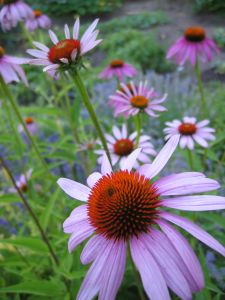
The thing every consumer needs to know about echinacea is to use the right form of the herb for the desired application. Here is the general rule:
- If you are an adult, use Echinacea purpurea flowers stabilized with alcohol or, if you do not use alcohol for religious or other personal reasons, Echinacea purpurea flowers in glycerin. An example of this kind of product is Bioforce/Echinaforce by the A. Vogel Company.
- If you are giving echinacea to a child, give Echinacea angustifolia root capsules or Echinacea angustifolia root in glycerin. An example of this kind of product is Echinacea Angustifolia Capsules by Solaray.
If you are concerned about fighting infection, you need to take the product by mouth. The immune-stimulant components of echinacea are released by digestion.
If you are only interested in fighting upper respiratory inflammation, an echinacea spray for the throat is fine. Just know that the effects will only last an hour or two before you need more.
If you are treating children's ear infections, start giving Echinacea angustifolia before colds and flu season starts. It also helps to give vitamin C and propolis. If your child cannot swallow a capsule, then give echinacea that has been mixed with glycerin.
Mixing Medications and Echinacea
The active ingredients in echinacea are activated by certain enzymes in the liver. The active ingredients in many medications are activated by the same enzymes. There are certain medications that may build up in the bloodstream when you take Echinacea angustifolia. This usually is not a problem because this form of the herb is usually recommended for children and children do not typically take, for example, Viagra, Levitra, or Cialis.
You should not use Echinacea angustifolia if you take the aforementioned medications for erectile dysfunction or:
- barbiturates
- carbamazepine
- efavirenz
- etravirine
- modafinil (stimulant)
- mood stabilizers
- nevirapine
- non-nucleosidereverse transcriptase inhibitors for HIV and AIDS
- oxcarbazepine
- phenobarbital
- phenytoin(anticonvulsant)
- rifampicin (bactericidal)
Echinacea angustifolia significantly reduces the effectiveness of the medications listed above as well as St. John's wort. Taking this form of echinacea with St. John's wort reduces its effectiveness for depression. (If you do not know whether a drug you are taking is one of these medications, ask your pharmacist.)
This form of echinacea also slightly reduces the effectiveness of:
- dexamethasone (anti-inflammatory,immunosuppressant)
- felbamate (anticonvulsant)
- glucocorticoids (immunosuppressive)
- griseofulvin (antifungal)
- pioglitazone (for diabetes)
- primidone (anticonvulsant)
- rifabutin (intuberculosis)
- topiramate (anticonvulsant)
Echinacea angustifolia fights inflammation, but it reduces the anti-inflammatory effect of steroid drugs. It also reduces the effects of Actos and Avandia for diabetes. However, since it is usually children who get this form of echinacea and children usually do not get these prescription medications, interactions are not very likely.
What about Echinacea purpurea? This is the form of echinacea used to make tinctures typically taken by adults. The restrictions on the use of this herb are commonsensical.
Commonsense Restrictions on Echinacea Use
If you are taking a medication to reduce the activity of your immune system because you have lupus, rheumatoid arthritis, or a similar condition, then you should not take echinacea to increase the activity of your immune system. If you are taking any drug that you can't take with orange juice or grapefruit juice because of its effects on liver enzymes, then don't take echinacea, either.
Either kind of echinacea can cause allergic reactions, although allergies to echinacea are very rare. If you get an allergic reaction to this herb, it is more likely to be a purplish skin rash that goes away in about a week than it is to be sniffles, sneezing, or cough. Discontinue the herb if you develop allergy symptoms.
-
Skin CareMen Skin Care
-
Free ResourcesFree eBooks
-
Every person is a God in embryo. Its only desire is to be born.Deepak Chopra
-
What We RecommendIf you do an analysis of the ingredients in a bottle of
 Total Balance and compare with other products you will find that it provides exceptional value for money…even against simple mass produced products with lower bottle costs.
Total Balance and compare with other products you will find that it provides exceptional value for money…even against simple mass produced products with lower bottle costs.
-
